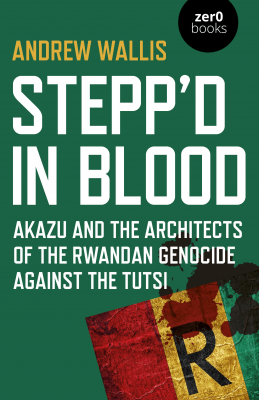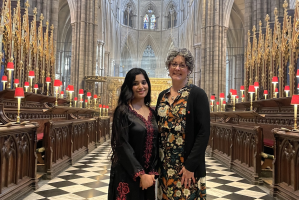Book: Rwanda - An uncomfortable chapter in Catholic history

Review of 'Stepp'd In Blood' Andrew Wallis, Zero Books, May 2019 -
Imagine the scene in 1994 as 500 terrified Rwandans sought refuge from the attacking militia by heading for their local church. They knew that Catholics had protected them in previous violent uprisings against their ethnic group, the Tutsi. This time, the nuns hid the unarmed civilians in an outbuilding. And then, when the Hutu militia arrived on the scene, the nuns gave them the petrol with which they burned the 500 Tutsi to death.
Now, imagine that scene happening at churches all over Rwanda in the one hundred days of the 1994 genocide. Yet, when the nuns were brought to justice, priests intimidated witnesses into withdrawing their testimony, and the church refused to excommunicate those involved in the killing.
Almost no one comes out of Andrew Wallis's book with honour, except UN General Romeo Dallaire, who repeatedly warned the international community what was about to happen in the tiny central African nation: not the UN, the USA, the UK, the French, or the African leaders who looked on indifferently as a million people were hacked to death. But, as Wallis makes clear, a special place in hell is surely reserved for Rwanda's Catholic authorities.
Nor is this a matter of historic interest, since Hutu extremists, hidden by the White Christian Fathers, continue to live in the West (more than 800 in the UK alone). The Vatican refuses to cooperate with Rwandan requests for the extradition of 605 leading genocidaires who live among us in Europe and North America.
"The survivors find themselves taunted by their old executioners on the sidewalks in Liege or at the markets in Brussels," Wallis remarks.
In fact, Rome intervened to shield Father Wenceslas Munyeshyaka, accused of rape and genocide, but now living in France. Not a single priest has been disciplined - not even those found guilty of mass murder. They continue to wear clerical clothes and say Mass in prison.
At independence in 1962, the Belgians took power from the Tutsi minority, whom they had used to run their colony, and transferred it to the Hutu majority. As it does elsewhere in parts of the developing world, the Catholic church allied itself with the new Hutu powers and the land-owning class. Priests wore lapel pins with an image of the Hutu dictator, Habyarimana, and their pastoral letters bestowed legitimacy on the Hutu extremists' exclusionary ideology.
Archbishop Andre Perraudin exploited these racial divisions, rather than trying to heal the country or emphasise a common Rwandan identity. The Association of Christian Workers pointed out that their priests never visited the poor or sick or suffering, having nothing to say about the chasm between the people and their privileged, kleptomaniac rulers. There was only one Tutsi bishop, and he was the victim of baseless gossip: then he was murdered during the genocide.
The Protestants in Rwanda were scarcely better, but they were a minority: the power to influence public and political opinion lay with Rome and its local representatives. Yet, even now, there has been no Vatican enquiry into the church's role in the Rwandan genocide.
Let the final word go to Francois Mitterrand, who, as French president, facilitated the supply of weapons and training to the genocidaires, whose soldiers lured Tutsi out of hiding so the Hutu could slaughter them, and who propped up the murderous regime on 24 occasions: "In countries like that, genocide isn't so important."


















